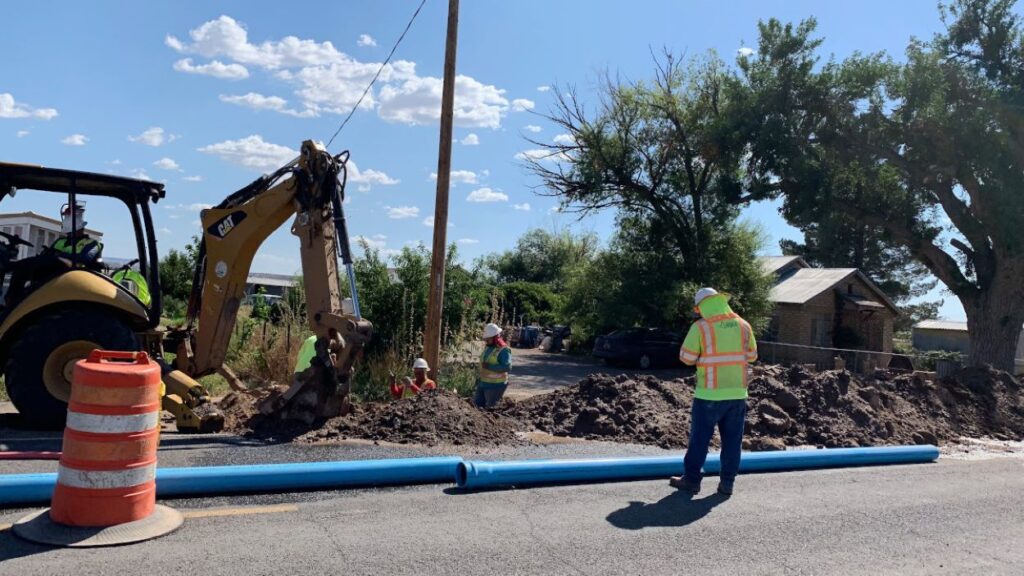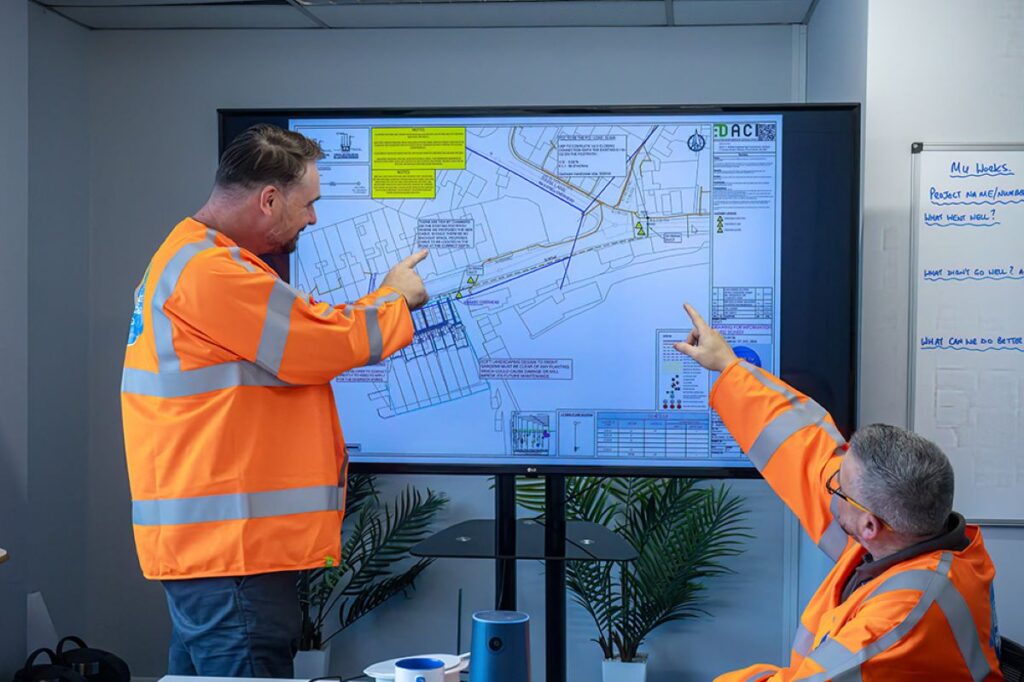Understanding the importance of cable locating services
When embarking on any excavation project, one crucial aspect that often gets overlooked is the significance of cable locating services. Many contractors, whether they are new to the field or seasoned professionals, may underestimate the consequences of unearthing buried cables. A simple mistake in this regard can lead to not only project delays but also catastrophic financial repercussions.
Cable locating services employ sophisticated techniques to identify the position of utilities buried underground. This prevents accidents and facilitates safer, more efficient excavation processes. In a world where infrastructure is constantly evolving, understanding where these cables lie is paramount.
The role of cable locating in excavation
The role of cable locating in excavation cannot be overstated. It provides an avenue for contractors to ensure the safety of their personnel while also protecting their investment in machinery and materials. As we dig deeper into our urban jungles, the underground complexities of energy, telecommunications, and water services continue to grow.
By understanding the layout of these utilities, teams can develop structured excavation plans. Not only does this enhance operational efficiency, but it also fosters cooperation among different service providers, ensuring a smoother workflow with increased transparency.
How cable locating services save time and money
Ultimately, employing cable locating services is an investment that pays off significantly over time. When you avoid potential pitfalls—like hitting a live cable—you reduce the need for costly repairs and delays. The expenses accrued from emergency repairs can quickly escalate, far exceeding the initial cost of hiring a cable locating service.
Furthermore, time is money. Projects that run over schedule due to unforeseen issues incur not just financial loss but can also damage reputations. Services that utilise cable locating technology minimise these risks, ensuring that projects stay on track and within budget, allowing contractors to focus on their core tasks.
The process of cable locating
The process of cable locating begins with a thorough initial site assessment and planning. This step is vital because it establishes foundational knowledge about the area before any excavation begins. A well-prepared plan permits a clearer understanding of the utility infrastructure and any potential challenges.
During this initial phase, the locating team might consult utility maps and historical records. These documents give insights into what may be buried beneath the surface, which aids in directing resources to areas where issues are more likely to occur.
Initial site assessment and planning
With an effective assessment in hand, the next step involves meticulous planning for the excavation. Planners must take factors such as soil type, existing structures, and surrounding utility locations into account. A detailed plan optimises the digging process and can significantly mitigate mishaps.
Being overly cautious during this phase pays dividends, especially in busy urban areas where the risks increase. A well-executed initial assessment lays the groundwork for a project that is not only efficient but also safe.
Utilising advanced technology in cable detection
Modern cable locating services employ a variety of advanced technologies to detect and map the locations of underground cables. From electromagnetic methods to ground-penetrating radar, these solutions have dramatically enhanced the reliability and precision with which utilities are located.
Utilising such technology not only streamlines the locating process but also boosts the overall safety of excavation projects. Accurate mapping leads to a more informed approach, reducing human error and improving communication among all parties involved.

Potential risks of neglecting cable locating
Neglecting cable locating before excavation can expose any project to significant risks. One particularly grave danger is the financial implications of accidental cable damage. Repairing damaged cables can cost a fortune, not just in physical repairs but also in project downtime and potential legal ramifications.
Moreover, the consequences of damage can extend beyond financial losses. Replacing or repairing a severed cable can mean days, if not weeks, of delay, which can be devastating for contractors operating under tight deadlines.
Financial implications of accidental cable damage
The financial implications of hitting an underground cable can be staggering. Besides repair bills, there can also be potential fines and costs related to service disruptions. If key infrastructures like power or telecommunications are compromised, the ripple effects can impact not just the immediate project but entire communities.
Essentially, all these factors highlight a fundamental truth: investing in cable locating services can significantly reduce financial risks down the line. Not having this pivotal service might save money upfront but can lead to far more significant costs later.
Safety hazards associated with undetected cables
Beyond financial concerns, safety hazards pose another reason for the importance of cable locating. Workers who encounter live cables face serious electrical shock risks, which can lead to significant injury or even fatalities. The protection of all personnel on site is paramount, and employing cable locating services significantly bolsters this aim.
By ensuring that all potential hazards are accounted for before excavation commences, project leaders provide a safer working environment, fostering trust and productivity among their teams.
Choosing the right cable locating service
Choosing the right cable locating service is as crucial as the excavation itself. Not all providers offer the same level of expertise or technology, so it is essential to do thorough research when selecting a partner.
Beating the competition in efficiency and accuracy relies heavily on the competency of your chosen cable locating service. A qualified service provider brings valuable experience and resources to the table, making it necessary to consider how well they align with your specific project needs.
Key factors to consider when selecting a provider
When choosing a cable locating service, there are several key factors to consider. Expertise and experience in the industry are paramount; providers should have a proven track record with various projects, particularly in the type of excavation you’re undertaking.
- Technology: Check if they employ advanced technology like electromagnetic locators or ground-penetrating radar.
- Certifications: Ensure they have proper certifications and licenses to operate in your area.
- Client Testimonials: Reviews from past clients can provide insight into their reliability and quality of service.
The value of professional and experienced cable locators
Utilising professional and experienced cable locators brings immense value to a project. Skilled professionals can accurately assess risks, detect utilities, and offer insightful recommendations based on their findings. Their expertise can often unveil issues that might not be immediately evident, giving contractors a much better insight into the challenges they might face.
In conclusion, partnering with experienced cable locating professionals can significantly enhance the safety and efficacy of excavation projects. The upfront costs of such services are often dwarfed by the savings and efficiencies they create.

Legislation and regulations surrounding cable locating
Current legislation and regulations surrounding cable locating are designed to safeguard all parties involved in the excavation process. As more stringent laws come into play regarding construction safety, understanding these frameworks has never been more critical.
Familiarity with local regulations concerning utility detection can prevent legal troubles and maintain project timelines. Ignorance of these laws could not only derail a project but also lead to penalties or even criminal charges for negligence.
Understanding the legal responsibilities in excavation
Every contractor and excavator must understand their legal responsibilities when it comes to cable locating. Compliance with these laws is not merely a suggestion; it’s a requirement for safe and effective construction work. Depending on the jurisdiction, local regulations often dictate that services must be located and marked prior to any digging.
Failure to comply with these regulations could result in significant fines and legal repercussions. On top of that, the reputational risk for a contractor can be devastating in an industry reliant on trust and reliability.
The impact of non-compliance on your project
Non-compliance with cable locating regulations can have devastating impacts on your project. Delays could accumulate due to legal challenges, leading to a domino effect on your overall timeline and budget. As these challenges unfold, the project could also suffer from reputational damage, affecting future opportunities.
In summary, staying ahead of legal responsibilities and engaging in reliable cable locating services ensure that your excavation projects are not just successful but also lawful and safe.
More to Read : Understanding Underground Utilities and Their Importance in Planning
















